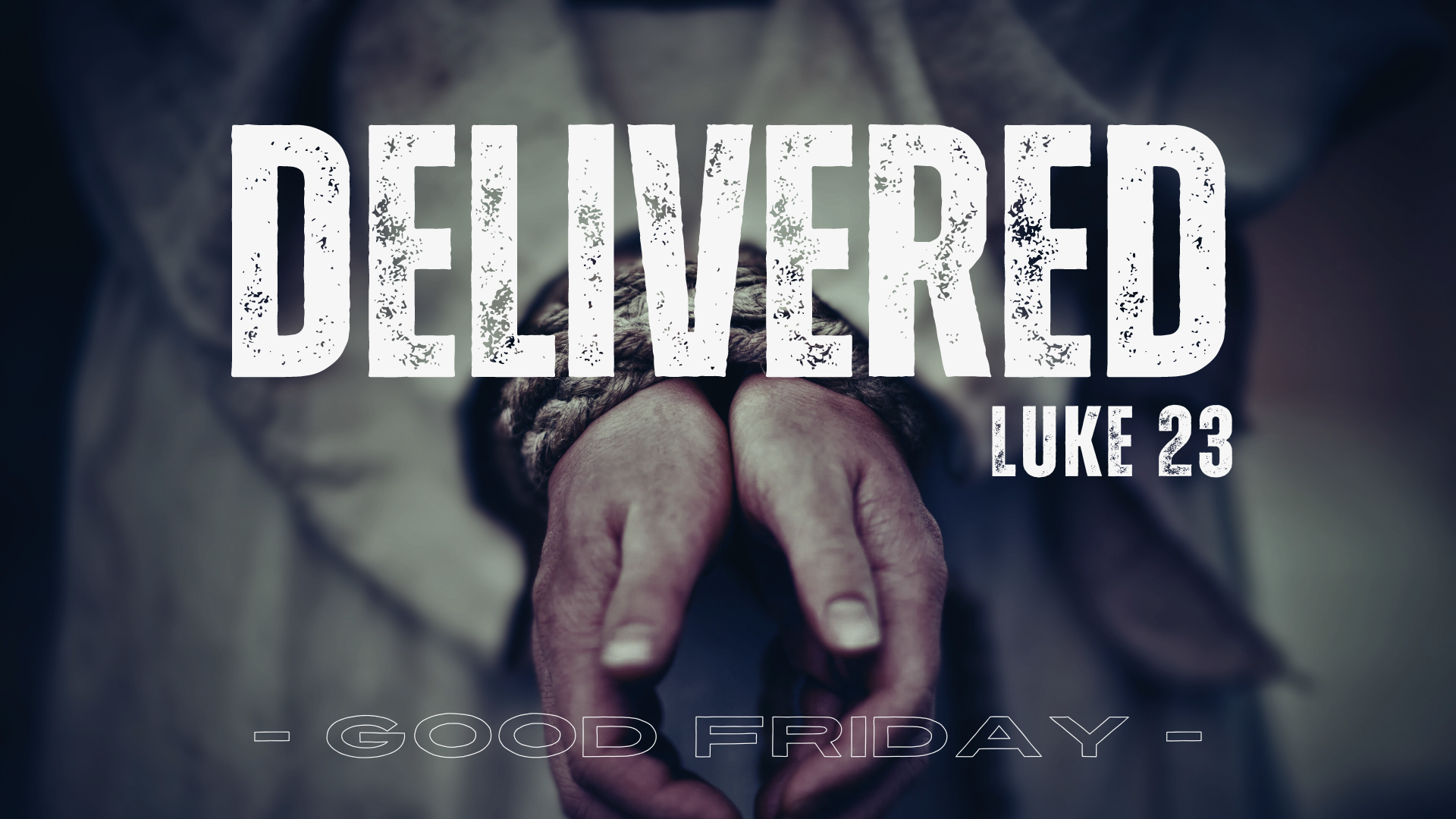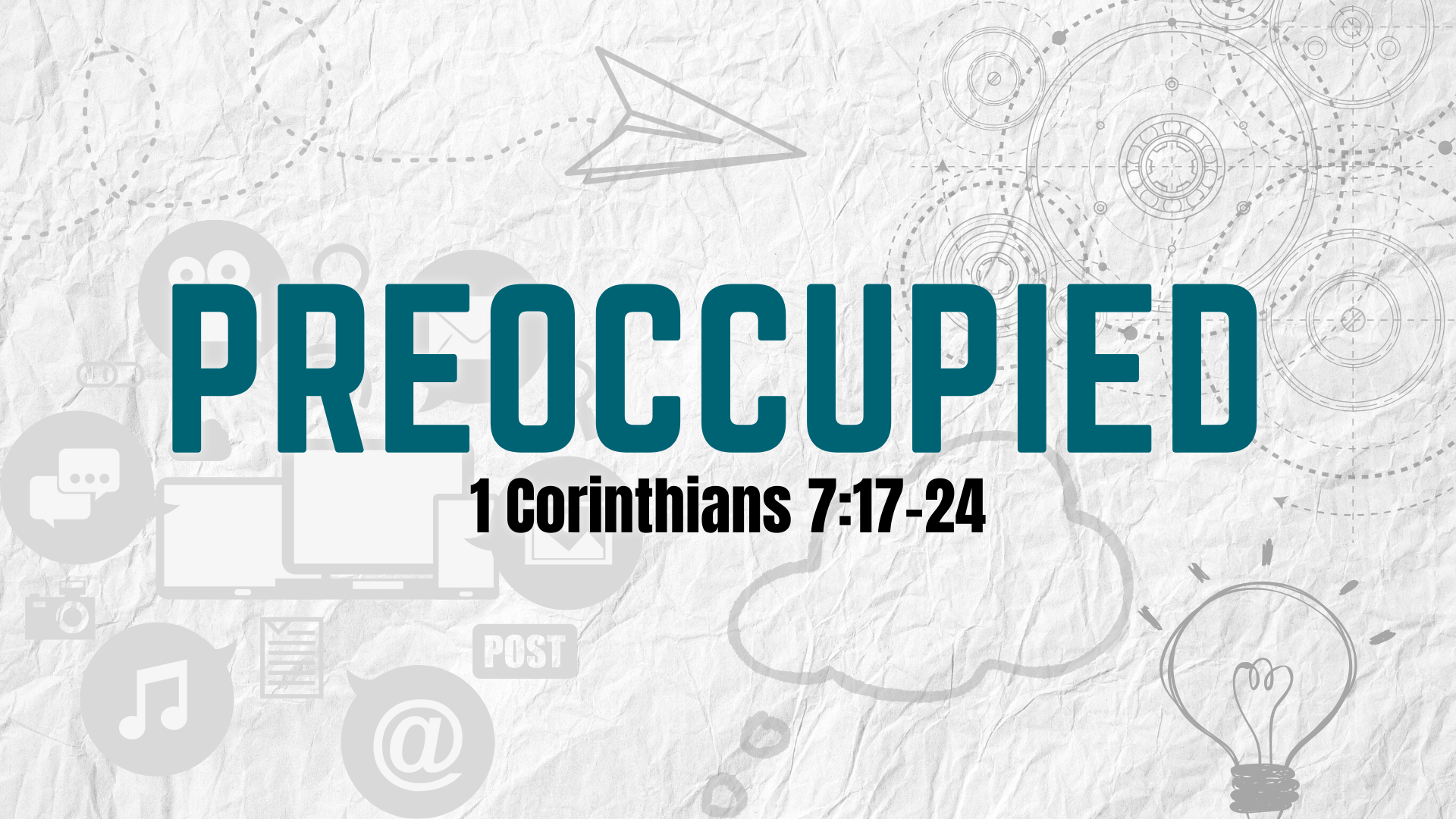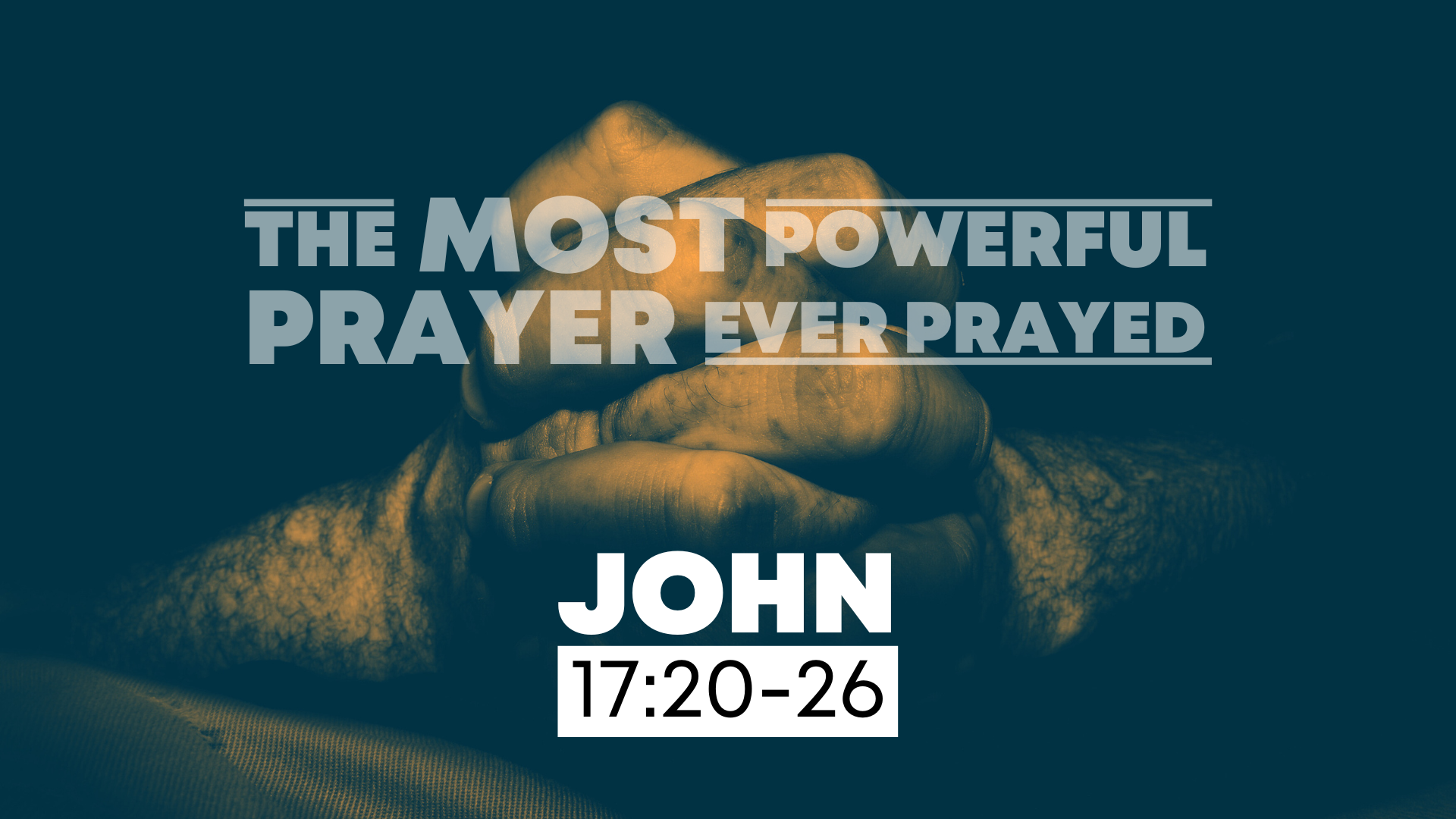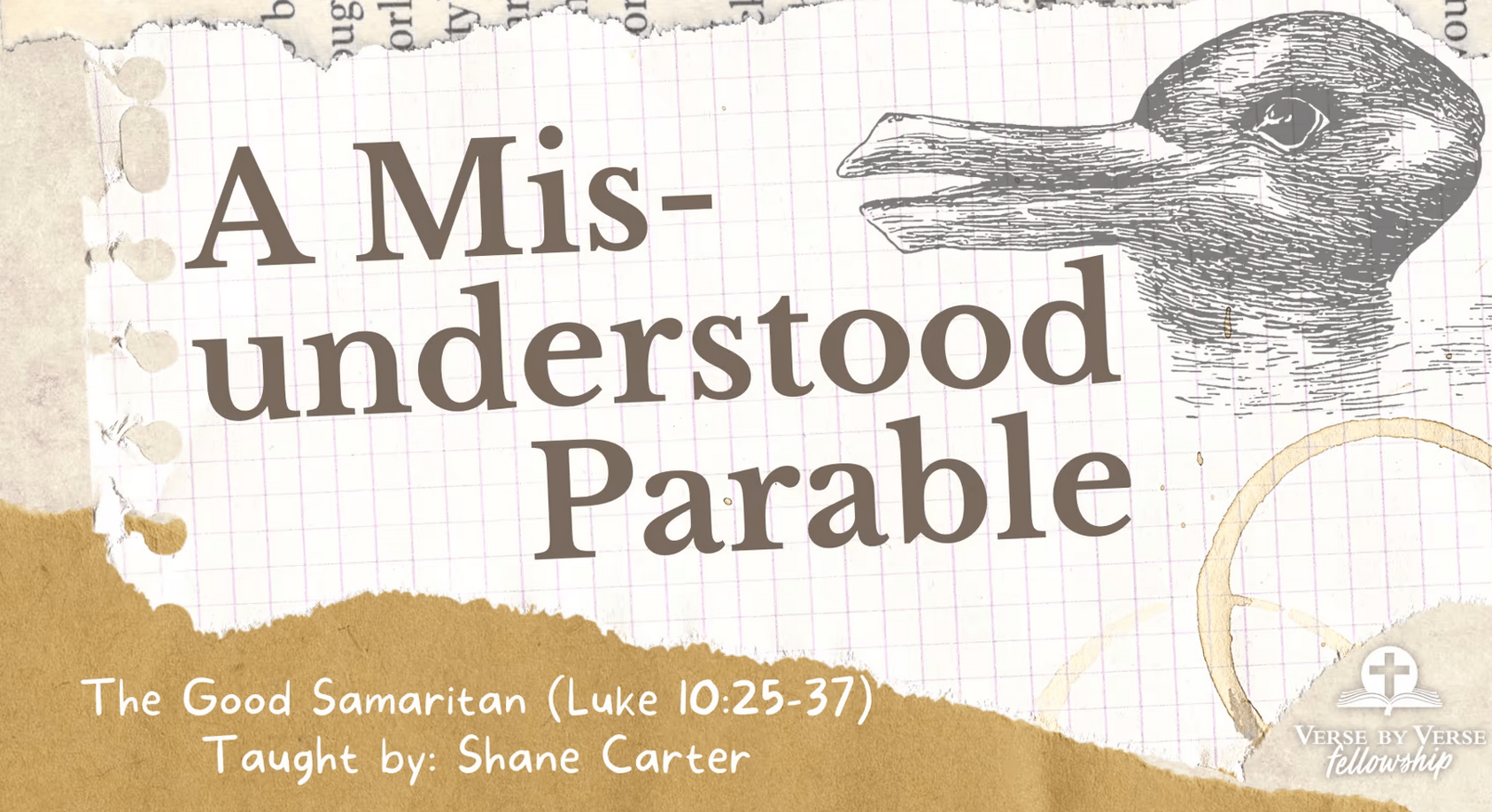Sunday Service 9am & 11am
Wednesday Service 7pm
(210) 920-6502
551 E Nakoma St.
San Antonio, TX 78216
Join a small group to study this sermon with like-minded believers.
Luke 23:50–24:9
LISTEN. STUDY. APPLY.
Video
Audio
Manuscript
Welcome everyone to our Resurrection Sunday service, 2024. Let me invite you now to take your Bibles and turn with me to the NT book of Luke, chapter 23. We’re going to look this morning at the resurrection of our Lord Jesus Christ recorded in the gospel of Luke. We looked at the death of Christ on Good Friday. Today we look at the resurrection. And in just a few moments, I’m going to give you three applicational takeaways from this passage.
-----------------------------------------------------------------------------------------
But first, let’s look at the text. Let’s pick up where we left off on Friday night. The gospel-writer, Luke, says in chapter 23, verse 46, that Jesus cried out “Father, into your hands I commit my spirit!” After that, he breathed his last.
And following Jesus’s death, Luke says in verse 50,
50 Now there was a man named Joseph, from the Jewish town of Arimathea. He was a member of the council, a good and righteous man, 51 who had not consented to their decision and action; and he was looking for the kingdom of God.
In other words, not all Jews or even Jewish leaders consented to putting Jesus to death. That’s important to Luke. We find out later in the book of Acts, that a great number of the priests in Jerusalem eventually put their faith in Christ (cf. 6:7). Perhaps even some of the priests that were complicit in putting Jesus to death, later got saved. That’s an amazing prospect.
Look at verse 52,
52 This man [Joseph of Arimathea] went to Pilate and asked for the body of Jesus.
53 Then he took it down and wrapped it in a linen shroud and laid him in a tomb cut in stone, where no one had ever yet been laid.
Jesus’s dead body was removed from the cross by Joseph of Arimathea. Joseph placed Jesus’s body in a tomb in a garden not far from Golgotha where Jesus was crucified. John tells us that Nicodemus, another well-known Jewish leader, helped Joseph with this task (cf. John 19:39). And they buried Jesus there with roughly 75 pounds of spices. And then they rolled a huge boulder in front of this tomb.
No one had ever been buried in this tomb before Jesus. And that boulder was strategic. They put that boulder there to keep grave-robbers from coming in. And they put a boulder in front of the tomb to keep the smell of Jesus’s rotting, putrefying flesh from coming out. Or so they thought.
Look at verse 54.
54 It was the day of Preparation, and the Sabbath was beginning. 55 The women who had come with him from Galilee followed and saw the tomb and how his body was laid.
Now keep that statement about “the women” in mind. Luke’s going to come back to them in chapter 24. These women are essential and strategic to this narrative.
56 Then they returned and prepared spices and ointments. On the Sabbath they rested according to the commandment.
Like good Jewish women, they rested on Saturday. But on Sunday morning, they are up bright and early to come anoint Jesus’s dead body. Or so they thought!
Look at verse 1,
1 But on the first day of the week, at early dawn,
What day is it? It’s Sunday! We call it “Sunday.” The Jews wouldn’t call it Sunday. They would call it “the first day of the week.” And Saturday, the Sabbath, was the last day of the week. Why do we worship on Sunday instead of on Saturday, the Sabbath, like OT Israelites? Because of what happens right here!
Back to verse 1,
1 But on the first day of the week, at early dawn, they went to the tomb, taking the spices they had prepared.
Who’s the “they” in verse 1? Well it’s not Joseph of Arimathea. And it’s not Jesus’s disciples. The Greek verb “taking” (Greek: φέρω) here is a feminine plural verb. These are the same “they” of 23:56. These are the women who went to prepare the spices and ointments for Jesus’s dead body. Luke makes that clear later in verse 11, “it was Mary Magdalene, Joanna, Mary the mother of James and the other women with them.”
You might say, “Where are Jesus’s disciples? Peter and all the rest?” Well, if you remember, when Jesus was arrested at Gethsemane, his male disciples abandoned him like a bunch of lily-livered scaredy-cats. Right after that, Peter denied him three times, and then ran away crying like a little schoolgirl (cf. Luke 22:54–62). The Apostle John was the only one that was with Jesus when he was crucified (cf. John 19:25–27).
But the women in Jesus’s life stayed with him. They stayed with him at the crucifixion. And on Sunday morning, when the disciples are holed up somewhere in Jerusalem afraid for their lives, these women rose early and took spices to anoint Jesus’s body.
And you kind of feel sorry for them. They just can’t shake this guy Jesus. Still after his death, they come to his tomb. If you didn’t know the rest of this story, you would almost feel sorry for these ladies. They can’t move on. And they go to take care of Jesus’s dead body. Or so they thought!
Now did these women think that Jesus was raised from the dead? Did they assume that? Absolutely not. Otherwise they wouldn’t be bringing fragrances to anoint a dead body to block the smell of rotting flesh. They assumed to themselves, “Jesus is dead. Jesus’s corpse needs spices! The smell of his body needs masking!” Or so they thought!
But now, look at verse 2,
2 And they found the stone rolled away from the tomb,
They came to find a dead body. Instead they found a stone rolled away! That large, stone disc had been rolled away from the entrance of the tomb. How’d that happen? Even more alarming is verse 3.
3 but when they went in they did not find the body of the Lord Jesus.
Where’s the body? Who took his body, and who moved the stone? And why doesn’t the place smell like rotting flesh? There’s no sign of a dead body. There’s no evidence of a dead body. There’s no smell of a dead body. This isn’t a tomb. This is just a cave carved out of rock.
Matthew Henry said years ago that Jesus’s tomb was a “borrowed tomb.” Jesus borrowed Joseph’s tomb, like I used to borrow my sister’s car when we were back in high school. “Thank you, Joseph, for the tomb. But I don’t need it anymore. You can have it back!”
By the way, Jesus rode into Jerusalem on a borrowed donkey, ate Passover in a borrowed room, and then when he died was laid in a borrowed tomb. Jesus didn’t pay for anything other than our sin. And now he owns our lives.
“Why do you say, ‘Borrowed tomb,’ Pastor Tony? Why just borrowed? What happened?” Let’s keep reading. Look with me at verse 4,
4 While [these women] were perplexed about this,
And don’t kid yourself, by the way. You’d be perplexed by this too. Remember they had just watched Jesus die on a cross. They had seen the lance thrust into his side and burst his heart. They had seen water and blood flow from his side. They had seen his lifeless body taken from the cross, wrapped with linen, and put into a tomb. If you were them, you’d be perplexed too. And they need some help to make sense of this.
And lo and behold, some folks are there to help them make sense of this.
4 [And] While they were perplexed about this, behold, two men stood by them in dazzling apparel.
In other words these are angels. In fact, they are explicitly called “angels” by the two men on the road to Emmaus in 24:23.
5 And as they were frightened and bowed their faces to the ground,
By the way, when angels showed up in the OT, oftentimes they killed folks. So these women were wise to hit the deck. Angels are not to be trifled with. They are not fat, baby-looking cherubs that shoot with bows and arrows and make people fall in love. That is a medieval invention.
5 And as they were frightened and bowed their faces to the ground, the men said to them, “Why do you seek the living among the dead?
“Tombs are for dead people, ladies! Why would Jesus be among the dead? Jesus is alive!” You know there are some in our world, who call themselves Christians, but they have a real problem with the resurrection of Jesus. They believe in his death on a cross. That’s completely plausible to them—Jesus executed by Romans? Sure. But risen from the dead? Come on, that’s not historically plausible.
And so the resurrection for them becomes a kind of spiritualized reality, not a bodily resurrection. They say, “No, Jesus Christ wasn’t literally raised from the dead. Instead, he is risen… in our hearts!”
And this passage becomes for those people a kind of spiritualized moralism or an ethical code to live by. And for my part, I wish that these angels here in Luke 24 could spend about five minutes with people like that, scare the jeepers out of them and say to them, “Why do you seek the living among the dead?” “Why are you so dense? Jesus is alive. He’s been raised from the dead!”
Look at verse 6.
6 He is not here, but [he] has risen.
You know there are other people in our day who say things like this, “I like Jesus; I do. I just don’t like the moral demands of Christianity. I like some things in the Bible, but there are other things that are distasteful for me.” “Maybe I’ll do these things from the Bible, but not these other things.” But here’s the thing, if Jesus didn’t actually rise from the dead, then who cares? Who cares what the Bible says? Who cares about its moral teachings? Who cares if you read the Bible or adopt some of its teachings or not? John MacArthur said once, “There is no Christianity without the resurrection. There is no salvation without belief in the resurrection.”
There may even be people who go to church on Easter Sunday, or watch a message like this as a kind of social obligation. And I’ll just tell you, if you don’t believe that Jesus rose from the dead, don’t bother with that. All of this is meaningless if Jesus didn’t actually rise from the dead.
I would even go further than that, and say if Jesus didn’t rise from the dead, then you better go do something else and enjoy yourself. Because there’s going to be a whole lot of nothingness after you are dead. Good luck dealing with death. Good luck dealing with the next great pandemic in our world. Good luck dealing with war and disease and aging.
But if you do believe that Jesus rose from the dead… if you do think his resurrection is plausible and believable and historically reliable…and by the way there are good biblical and extra-biblical reasons to believe that… If you do believe that, then you don’t get to say “Well, I like this in the Bible, but I don’t like that.” You don’t get to say that! You don’t get to say, “I like this about Jesus’s teaching, but not that.” If he is risen from the dead, then he is King of the world, and he deserves your absolute submission and following in all areas of life.
And just think about this for a second. Let’s do a little thought experiment together. How did that group of lily-livered, scaredy-cat disciples go from abandoning Jesus before his crucifixion to strong, bold, powerful witnesses for Jesus just a few days later? How did that happen? I mean they were in a sorry state after Jesus’s arrest. They were dejected. They were frightened. They were hiding. They were demoralized. How did that change?
Was it because they concocted this idea: “Okay, listen up, guys! Let’s just pretend that Jesus was raised from the dead. Yeah… yeah! Let’s just make something up. And then we can risk our lives telling other people about this fabricated story of ours!” Would they do that? Would these guys really be willing to give their lives for that? I don’t think so! It takes more faith to believe that, then faith to believe that Jesus actually rose from the dead.
You know how they changed from cowering scaredy-cats to bold followers of Jesus Christ, willing to preach him even unto death? I’ll tell you what it was. They saw Jesus alive! And they believed that he was raised from the dead.
And through the inspiration of the Holy Spirit, his disciples wrote these Scriptures so that you might see and believe in the resurrection too.
Look with me at verse 6. The angels said,
6 He is not here, but [he] has risen. Remember how he told you, while he was still in Galilee, 7 that the Son of Man must be delivered [παραδίδωμι] into the hands of sinful men and be crucified and on the third day rise.”
Jesus was delivered. Jesus was delivered over to death, so that you might be delivered from death. Jesus was delivered, so that he might become our great deliverer! And the remarkable thing is that Jesus told his disciples this would happen. The angel says in verse 6 here, “Remember.” That’s an imperative Greek verb. Remember what he said!
You know there’s great irony in the statement in Luke 23:25. Luke said, “but he [Pontius Pilate] delivered Jesus over to their will.” He delivered Jesus over to their will. But whose will was it ultimately that Jesus was delivered over to death? It wasn’t Pilate’s, and it wasn’t Jesus’s persecutors. It was God’s will. And Jesus knew it was coming ahead of time.
Jesus told his disciples (including these women), at least, three times that he was going to die and be resurrected! That’s why these angels say, “Remember! Remember, ladies!” Parents, have you ever had to tell your kids something three times before they get it? Do you ever tell your kids stuff less than three times? If so, you are not alone. Jesus dealt with that too. And bless their hearts, Jesus’s disciples, both male and female, didn’t get it. They didn’t remember. Not until after he was raised from the dead.
You know, human beings are a forgetful species, aren’t we? We need to be reminded about God’s Word often. That’s why we come to church for regular reminders about God’s Word. We need it.
Look at verse 8.
8 And they remembered his words,
Okay, now they remember. Praise the Lord. There is hope for your children someday, parents, that they will actually remember what you told them. It’ll probably kick in when their about 30 years old.
Just as a refresher here, Jesus told his disciples in Luke 9:22, “The Son of Man must suffer many things and be rejected by the elders and chief priests and scribes, and be killed, and on the third day be raised.”
Jesus says later in Luke 18:31-33, “See, we are going up to Jerusalem, and everything that is written about the Son of Man by the prophets will be accomplished. For he will be delivered over to the Gentiles and will be mocked and shamefully treated and spit upon. And after flogging him, they will kill him, and on the third day he will rise.”
And yet Luke 18:34 says, “But they understood none of these things. This saying was hidden from them, and they did not grasp what was said.” Did they just forget? Was this because of a lack of understanding or because of their hard hearts? I don’t know. I’m inclined to defer to God’s sovereignty and timing with these things. They didn’t know, because God didn’t allow them to know until the appointed time of his resurrection.
But watch what they do once they remember. Here their response of faith takes hold of their hearts. And these ladies do good after they receive word from these angels. Look at the end of verse 8.
8 And they remembered his [Jesus’s!] words, 9 and returning from the tomb they told all these things to the eleven [that’s the twelve disciples minus Judas] and to all the rest.
Interestingly Jesus repeats this same commission at the end of Luke 24 with his disciples. When he finally shows up in front of his disciples in verse 36, he startles them. And they think he’s a spirit. But he patiently assures them that it’s really him. He shows them his hands. And he shows them his feet. He asks for a fish, and they bring it to him. And he eats it! That’s amazing! The implication of that is this—spirits don’t eat fish! Jesus is showing them, “I’m not a spirit. I’m Jesus in the flesh, raised from the dead.”
And then he tells them… just like the angels did to the ladies at the beginning of chapter 24… He says, “these are my words that I spoke to you while I was still with you” (24:44). Remember? And then he commissions them, just like he commissioned those ladies.
Luke 24:46–48a – Thus it is written, that the Christ should suffer and on the third day rise from the dead, and that repentance for the forgiveness of sins should be proclaimed in his name to all nations, beginning from Jerusalem. You are witnesses of these things.
-----------------------------------------------------------------------------------------
So let me land this plane this morning for you. Today is Easter Sunday, 2024. It’s a great day to worship the Lord and gather as his church. And I’m going to finish this message in about three minutes, and then we’re going to close in a song of worship. But before we do that, I want to close with three final thoughts for you. These are the notes that are in your bulletin if you want to write them down. And all three of these thoughts revolve around our theme of “Delivered.”
Here’s the first. In Luke 23–24, here’s the message delivered to us.
1) Jesus was delivered unto death so that we might be delivered from death
Jesus was παραδίδωμι. Luke 23:25 says, “But [Pontius Pilate] delivered [παραδίδωμι] Jesus over to their will.” And their will was to crucify him. Why did Jesus do that? Why would Jesus allowed himself to go through that? Well, he did it to save us from eternal death. He sacrificed himself for the benefit of others.
Romans 6:23 says this, “For the wages of sin is death, but the free gift of God is eternal life in Christ Jesus our Lord.” No Christ; no eternal life. No Jesus, no gift. No sacrificial death; no deliverance from sin and death. You must believe in order to be saved.
Secondly,
2) Jesus sends us out to deliver the good news of his resurrection
We’ve been delivered by the truth of the gospel. And we have an opportunity to be truth-deliverers to others. Jesus sent those ladies out, after his resurrection. He sent them out as messengers! And Jesus revealed himself to his disciples at the end of Luke 24, and he sent them out as messengers. Jesus saves our souls, and he bestows on us the ministry of reconciliation (cf. 2 Cor 5:18–19). And he sends us out as his ambassadors. We are ambassadors for Christ delivering to others the good news of salvation through his death and resurrection.
And let me just play the part of that ambassador right now. Christ Jesus died for you. And he offers you the free gift of salvation. You can receive that now by faith in him. If you are unsaved, put your faith in him now. Let Easter 2024 be a day of salvation for you.
And thirdly… this is not an immediate implication of this NT text. But it is a clear truth presented in the NT. And it’s this…
3) Jesus will return as our great deliverer, rescuing us finally and forever from sin
Church, there is a deliverance to come. There is still more to the story of Jesus’s resurrection. We await his return. We await his deliverance. Hebrews 9:28 says this:
“So Christ, having been offered once to bear the sins of many, will appear a second time, not to deal with sin but to save those who are eagerly waiting for him.” Christ is coming again, and we await his return.

Taught by Dr Tony Caffey
Senior Pastor of Verse By Verse Fellowship
Single Teachings
LATEST SERMONS
BROWSE THE LATEST SERMONS















